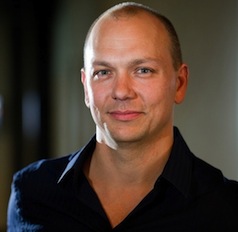 Last week, we witnessed something fairly remarkable. A major Alphabet executive — Nest Labs CEO Tony Fadell — publicly shamed the cofounder and employees of Dropcam, the connected camera company that Nest had acquired in 2014 for $555 million.
Last week, we witnessed something fairly remarkable. A major Alphabet executive — Nest Labs CEO Tony Fadell — publicly shamed the cofounder and employees of Dropcam, the connected camera company that Nest had acquired in 2014 for $555 million.
In an article in The Information, Fadell said that he didn’t think Dropcam cofounder and CEO Greg Duffy had “earned” the right to report to him directly. Fadell also explained away an exodus of Dropcam staffers by suggesting they were subpar. “A lot of the employees were not as good as we hoped,” he told The Information. It was “a very small team and unfortunately it wasn’t a very experienced team.”
Fadell may have been reacting to comments by Duffy, who painted a highly unflattering portrait of Fadell in the same article. However, Fadell’s comments and his poor performance underscore what an ill fit Fadell is for Alphabet and why Alphabet needs new leadership at Nest.
It wasn’t supposed to be like this, of course. Nest was acquired by Google for $3.2 billion in January 2014, a feat that earned Fadell plenty of accolades. Worried about competition and in awe of Fadell, who’d created the iPod as an Apple SVP, Duffy concluded that selling was his smartest play when Nest came knocking that spring.
Despite what seemed like a handsome payday for everyone involved with Dropcam, the bet soon looked like a poor one.
As we’d reported here in November 2014, not only did Duffy’s beloved VP of marketing almost immediately leave Nest over an apparent culture clash, but numerous employees we interviewed, along with scathing write-ups by former employees on Glassdoor, pointed surprisingly to trouble.
“Everything revolves around the CEO,” wrote one Glassdoor reviewer at the time. “It’s a dangerous mix of cult of personality and Stockholm syndrome. Comments like ‘[Fadell is] the next Steve Jobs are not uncommon, while people proudly say things like ‘I’m used to Tony screaming at me.’”
It wasn’t just the different management styles of Fadell and Duffy, whose organization was one-eighth the size of Nest and who was well-liked by his employees. There was suddenly an inability to get anything meaningful done. One Nest employee described to me a “huge meeting culture, to the point where anyone at the director level or up spends their entire day in meetings, many of them duplicative meetings about the same subject, over and over to the point where a lot of people have complained.”
Things remain much the same 16 months later, suggests The Information, whose report says Nest’s culture of micromanagement has more recently led the firm to plaster its offices with the phrase “Step Up” to ostensibly encourage lower-level employees to take more initiative.


